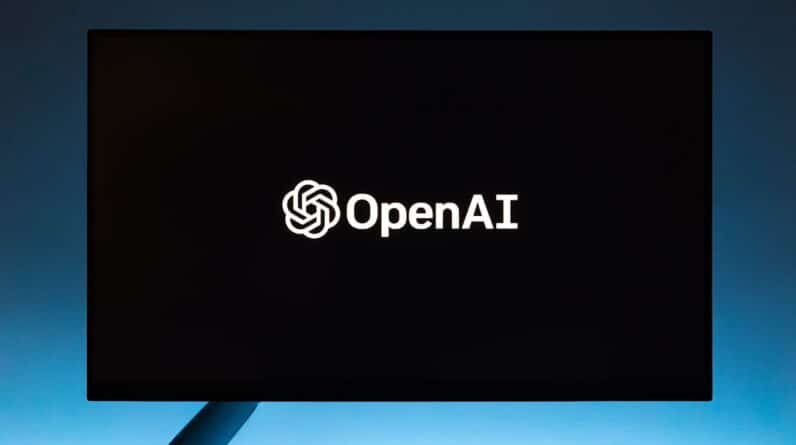As artificial intelligence continues to permeate various aspects of our lives, the conversation surrounding AI ethics has gained significant momentum. You may have noticed that discussions about the moral implications of AI technologies are becoming increasingly prevalent in both academic circles and public discourse. This rise in awareness is not merely a trend; it reflects a growing recognition of the profound impact that AI can have on society.
As you engage with this topic, it becomes clear that the ethical considerations surrounding AI are not just theoretical musings but practical concerns that demand your attention. The emergence of AI ethics can be traced back to the early days of AI development, but it has accelerated in recent years due to the rapid advancements in machine learning and data analytics. You might find it fascinating that as AI systems become more autonomous and capable of making decisions, the ethical implications of those decisions become more complex.
The need for a framework to guide the development and deployment of AI technologies has never been more urgent. As you explore this landscape, you will encounter various stakeholders, including technologists, ethicists, policymakers, and the general public, all grappling with the moral dimensions of AI.
Key Takeaways
- AI ethics is becoming increasingly important as artificial intelligence technology continues to advance.
- AI has the potential to impact moral decision making by influencing the way decisions are made and the values that are prioritized.
- Ethical considerations in AI development are crucial to ensure that AI systems are designed and used in a responsible and ethical manner.
- AI plays a role in shaping moral values by influencing the way individuals and societies perceive and prioritize certain values.
- Challenges and dilemmas in AI morality arise from the potential for AI to make decisions that have ethical implications, leading to the need for ethical guidelines in AI development and use.
- Balancing AI advancements with moral responsibility is essential to ensure that AI technology is used in a way that aligns with ethical principles and values.
- The future of AI has implications for ethics, and it is important to consider the ethical implications of AI advancements as the technology continues to evolve.
The Impact of AI on Moral Decision Making
The Question of Accountability
When an AI system makes a decision that adversely affects an individual or a group, who is responsible? As you ponder this question, you might realize that the answers are not straightforward, as they involve a complex interplay between technology and human values. Moreover, the integration of AI into decision-making processes can lead to unintended consequences.
The Dangers of Biased Data
For instance, you may have heard about cases where biased data sets have resulted in discriminatory outcomes. This highlights the importance of scrutinizing the data that feeds into AI systems. As you consider these implications, it becomes evident that moral decision-making in the age of AI requires a reevaluation of traditional ethical frameworks.
Rethinking Moral Philosophies
You may find yourself questioning whether existing moral philosophies can adequately address the challenges posed by intelligent machines.
Ethical Considerations in AI Development
When it comes to developing AI technologies, ethical considerations must be at the forefront of the conversation. You might be surprised to learn that many developers and researchers are now prioritizing ethical guidelines in their work. This shift is essential because the decisions made during the design and implementation phases can have lasting effects on society.
As you delve deeper into this topic, you will discover that ethical AI development involves not only technical expertise but also a commitment to social responsibility. One critical aspect of ethical AI development is transparency. You may appreciate that understanding how an AI system arrives at its conclusions is vital for building trust among users.
When you encounter an AI-driven recommendation or decision, knowing the underlying logic can help you assess its fairness and reliability. Additionally, inclusivity plays a crucial role in ensuring that diverse perspectives are considered during the development process. By engaging with a wide range of stakeholders, developers can create more equitable systems that reflect the values of the communities they serve.
The Role of AI in Shaping Moral Values
AI does not merely reflect existing moral values; it actively shapes them as well. As you engage with various AI applications, you may notice how they influence societal norms and expectations. For instance, social media algorithms curate content based on user preferences, which can reinforce certain beliefs while marginalizing others.
This phenomenon raises important questions about the role of AI in shaping public discourse and moral values. You might find yourself reflecting on how these algorithms can create echo chambers that limit exposure to diverse viewpoints. Furthermore, as AI systems become more integrated into daily life, they can alter your perceptions of right and wrong.
You may have experienced situations where an AI-driven recommendation influenced your choices or opinions. This raises concerns about autonomy and agency—how much control do you retain over your decisions when algorithms play a significant role? As you contemplate these issues, it becomes clear that the relationship between AI and moral values is dynamic and reciprocal, necessitating ongoing dialogue about the implications of these technologies.
Challenges and Dilemmas in AI Morality
The intersection of AI and morality is fraught with challenges and dilemmas that require careful consideration. One significant challenge is the issue of bias in AI systems. You may have heard about instances where algorithms perpetuate existing societal biases, leading to unfair outcomes for marginalized groups.
This reality underscores the importance of addressing bias at every stage of AI development—from data collection to model training. As you reflect on this issue, you might recognize that combating bias requires not only technical solutions but also a commitment to ethical principles. Another dilemma arises from the potential for AI to make life-and-death decisions in critical areas such as healthcare and autonomous vehicles.
Imagine a scenario where an autonomous vehicle must choose between two potential outcomes: swerving to avoid a pedestrian at the risk of harming its passengers or continuing on its path. Such moral dilemmas challenge your understanding of ethics and force you to confront uncomfortable questions about value judgments in life-and-death situations. As you navigate these complexities, it becomes evident that developing ethical frameworks for AI requires collaboration across disciplines and a willingness to engage with difficult moral questions.
The Need for Ethical Guidelines in AI
Guidelines as a Roadmap for Responsible AI
As you delve into these guidelines, consider how they can serve as a roadmap for developers and policymakers alike. By adhering to established ethical standards, stakeholders can work together to mitigate risks associated with AI while maximizing its benefits.
Evolving Guidelines for a Changing Landscape
It is essential to recognize that these guidelines are not static; they must evolve alongside technological advancements and societal changes. This ensures that they remain relevant and effective in addressing the ethical implications of AI.
Ongoing Discussions for a Responsible AI Future
Engaging in ongoing discussions about ethics in AI will be crucial for ensuring that these guidelines remain relevant and effective. By continuing to explore and address the ethical challenges associated with AI, we can work towards a future where AI is developed and used responsibly.
Balancing AI Advancements with Moral Responsibility
As you witness the rapid advancements in AI technology, it becomes increasingly important to balance innovation with moral responsibility. You may feel a sense of urgency as new applications emerge, promising to revolutionize industries and improve lives. However, this excitement must be tempered by a commitment to ethical considerations.
The challenge lies in fostering an environment where innovation can thrive while ensuring that moral implications are carefully weighed. One way to achieve this balance is through interdisciplinary collaboration. By bringing together experts from fields such as ethics, law, sociology, and computer science, you can create a more holistic approach to AI development.
This collaborative effort can help identify potential ethical pitfalls early in the process and promote responsible practices throughout the lifecycle of an AI system. As you engage with this idea, consider how your own perspective can contribute to this dialogue and help shape a future where technological advancements align with moral values.
The Future of AI and Its Implications for Ethics
Looking ahead, the future of AI presents both exciting possibilities and significant ethical challenges. You may envision a world where intelligent machines enhance human capabilities and address pressing global issues such as climate change or healthcare disparities. However, this optimistic outlook must be tempered by a recognition of the potential risks associated with unchecked AI development.
As you contemplate these implications, it becomes clear that proactive measures are necessary to ensure that AI serves humanity’s best interests. In this evolving landscape, your role as an informed citizen becomes increasingly important. Engaging with discussions about AI ethics allows you to contribute to shaping policies and practices that prioritize moral responsibility alongside technological advancement.
As you navigate this complex terrain, remember that the choices made today will have lasting consequences for future generations. By advocating for ethical considerations in AI development, you can help create a future where technology aligns with our shared values and aspirations. In conclusion, as you reflect on the rise of AI ethics and its implications for society, consider how your engagement with these issues can foster a more responsible approach to technology.
The interplay between AI and morality is intricate and ever-evolving; your awareness and involvement are crucial in navigating this landscape effectively. Embracing ethical considerations in AI development will not only enhance technological progress but also ensure that our collective moral compass guides us toward a more equitable future.
In a recent article on AI research and development https://ailab360.net/ai-research-and-development/, the discussion of the future of ethics in artificial intelligence is explored. As technology continues to advance, questions surrounding the morality of AI systems become increasingly important. This article delves into the ethical considerations that must be taken into account as AI becomes more integrated into our daily lives. It also touches on the potential implications of GPT-3 and beyond in natural language processing https://ailab360.net/gpt-3-and-beyond-the-latest-in-natural-language-processing-nlp/, and the different types of artificial intelligence https://ailab360.net/what-are-the-two-types-of-artificial-intelligence/. These topics are crucial in shaping the future of AI and its impact on society.
FAQs
What is AI and Morality?
AI and Morality refers to the ethical considerations and implications of artificial intelligence (AI) and its impact on society. It involves examining the ethical decisions made by AI systems and the potential consequences of these decisions on human well-being.
Why is AI and Morality important?
AI and Morality is important because as AI technology becomes more advanced and integrated into various aspects of society, it raises important ethical questions about how AI systems should make decisions and the potential impact of these decisions on individuals and society as a whole.
What are some ethical considerations related to AI and Morality?
Some ethical considerations related to AI and Morality include issues of fairness and bias in AI decision-making, the potential for AI to infringe on privacy rights, the impact of AI on employment and the economy, and the potential for AI to be used in harmful or unethical ways.
How are researchers and policymakers addressing the ethical implications of AI?
Researchers and policymakers are addressing the ethical implications of AI through the development of ethical guidelines and principles for the design and use of AI systems, the establishment of regulatory frameworks for AI, and ongoing research into the ethical challenges posed by AI technology.
What are some potential future developments in the field of AI and Morality?
Some potential future developments in the field of AI and Morality include the continued development of ethical AI systems that prioritize fairness and transparency, the integration of ethical considerations into AI design and development processes, and ongoing efforts to address the societal impacts of AI technology.






